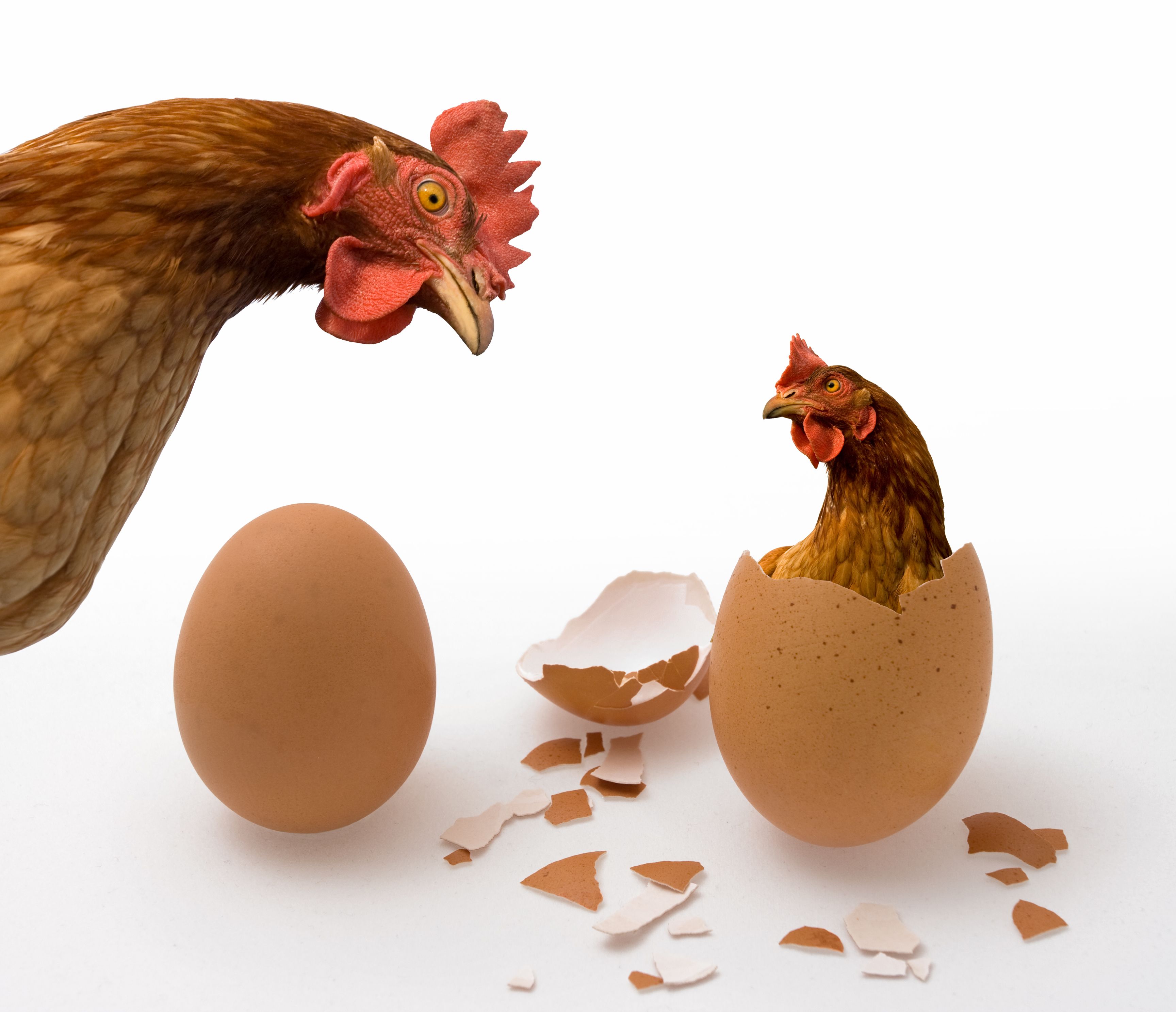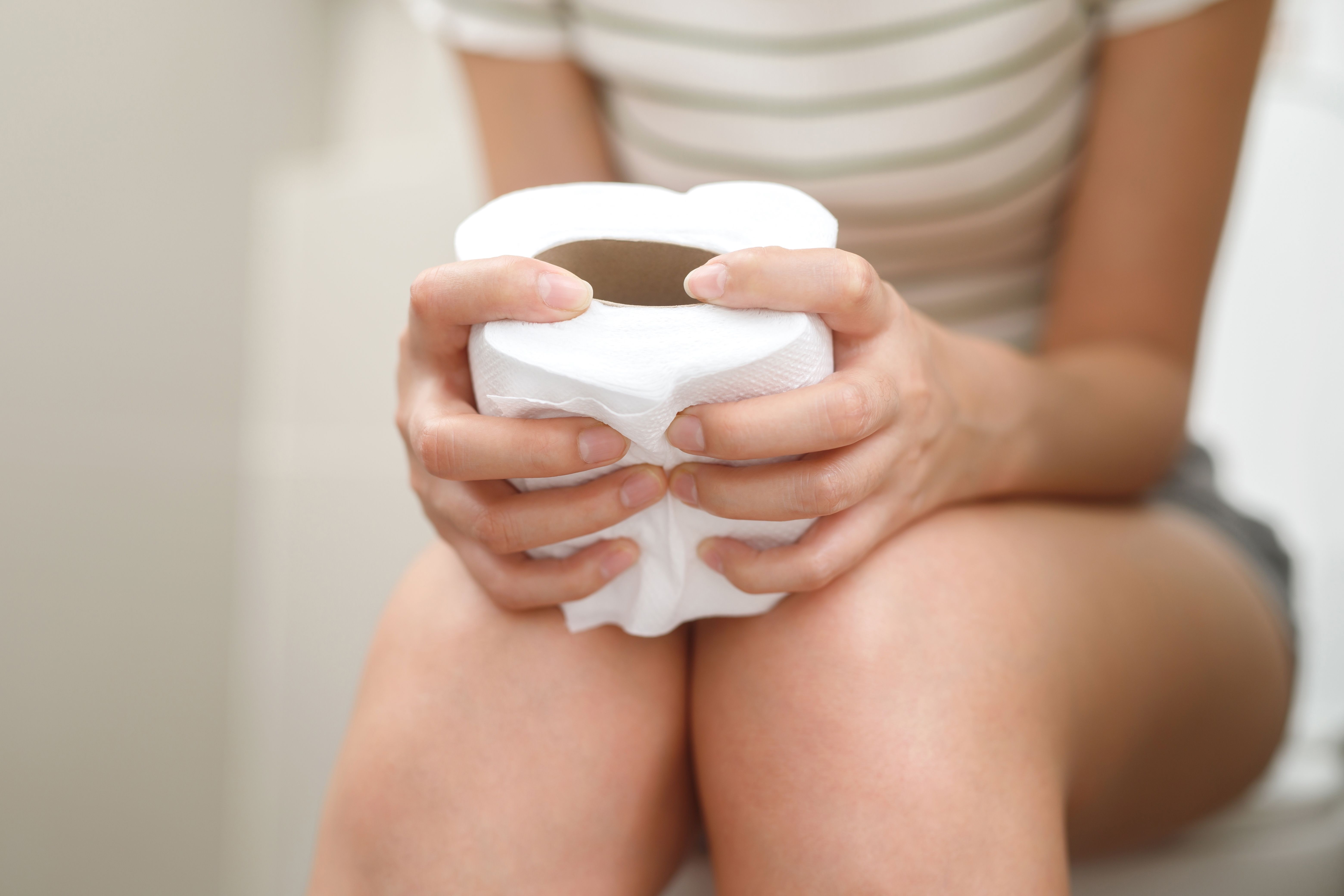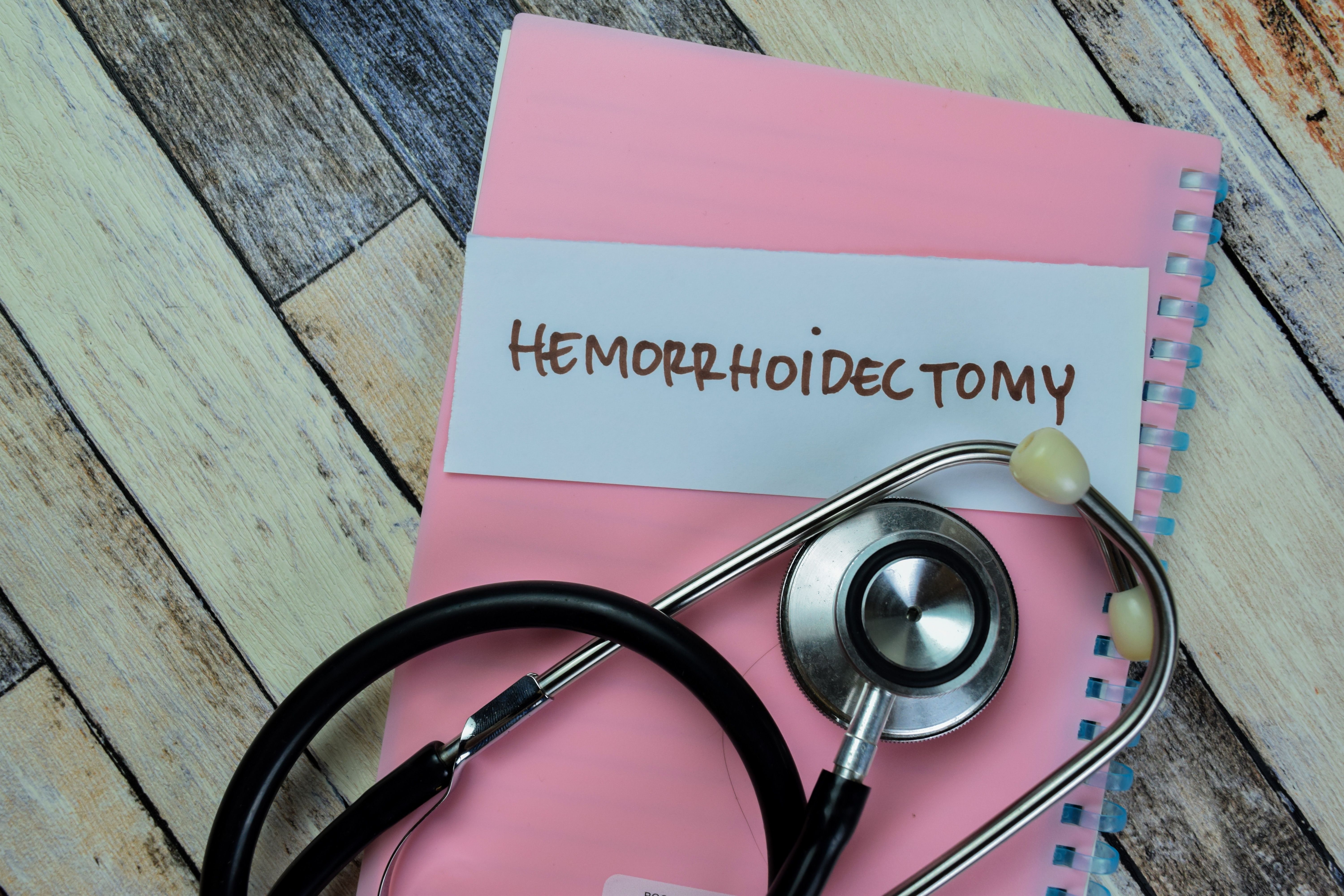Hemorrhoids and constipation: the egg-and-chicken problem

Chronic constipation can cause complications, such as hemorrhoids, which can obstruct the stool passageway and further exacerbate constipation.
Can constipation be the origin of hemorrhoids?1-3
Chronic constipation occurs when you have infrequent bowel movements or difficulty passing stools for several weeks or more. Over time, if you regularly experience constipation, you are at risk for certain complications, such as hemorrhoids. Indeed, constipation, a low-fiber diet, a high body mass index, pregnancy, and a sedentary lifestyle are assumed to increase the risk of hemorrhoidal disease.
Why? When you are constipated, you may find yourself straining to pass a stool. Excessive abdominal pressure from constipation and straining during bowel movements can stretch the small veins around your anus and rectum. The stretching reduces the elasticity in the veins, causing them to enlarge and swell with blood. When this happens, the veins have an elevated risk of fragility and blood clot formation. This is why constipation, straining during bowel movements, and hard or lumpy stools for at least 25% of the time are all associated with an increased prevalence of hemorrhoids.
These can cause:
- Irritation or itching around your anus
- Discomfort or pain around your anus
- Swelling around your anus
- Bleeding during bowel movements
It is worth noting that constipation can also cause hemorrhoids to bleed. When stools are hard, they can be difficult and painful to pass. This increases pressure on the veins in the rectum and may cause them to swell and bleed. Straining during bowel movements will also put extra pressure on the veins, which can lead to bleeding.
The reverse: can hemorrhoids be the origin of constipation?3
Yes, the link between hemorrhoids and constipation goes both ways. Hemorrhoids might cause or worsen constipation. When inflamed, they cause discomfort, pain, and itching in the affected area, which makes passing stools difficult and leads to constipation. They may also cause bleeding during bowel movements, further aggravating constipation. Another factor is that people with hemorrhoids may avoid going to the bathroom due to discomfort or fear of pain, which in turn leads to stool build-up and constipation. Moreover, piles can function as an obstruction, which compounds constipation.
Hemorrhoids and constipation treatment1-3
Treatment for hemorrhoid-related constipation differs slightly from the treatment for other causes of constipation. A balanced diet with adequate fiber and fluid intake to improve stool consistency, making it easier to pass, should be one of the main purposes in conservative treatment for hemorrhoids. Individuals can get this from daily servings of fruits, vegetables, and whole grains. Taking some fiber supplements can provide extra convenience. Fiber intake decreases the risk of:
- Hemorrhoids
- Not improving/persisting hemorrhoids symptoms by 47%
- Bleeding hemorrhoids by 50%
To help stop hemorrhoids from developing or getting worse, it is also recommended to:
- Treat chronic constipation early
- Try to avoid straining during bowel movements
- Avoid sitting for prolonged periods of time on the toilet, which can put pressure on the veins around your anus
To relieve constipation from hemorrhoids, it is important to:
- Drink plenty of water: staying hydrated is essential for softening stools and avoiding constipation
- Exercise regularly: physical activity can help stimulate bowel movements and prevent constipation
- Take a sitz bath, which involves soaking in a warm, shallow tub to help reduce pain and inflammation in the anal region. A daily soak for 10-15 minutes may be helpful
- Use topical treatments: over-the-counter creams, ointments, and suppositories can help relieve hemorrhoid symptoms and reduce pain and itching
- Take stool softeners that increase the amount of fat and water in the stool, help ease bowel movements, and reduce straining.

How do you prevent chronic constipation complications, such as hemorrhoids?2
To avoid potential complications, it is important to prevent and treat chronic constipation. Practicing healthy lifestyle habits may help, such as:
- Go to the bathroom whenever you feel the urge, rather than waiting
- Eat fiber-rich foods, such as fruits, vegetables, beans, nuts, seeds, and whole grains
- Stay well-hydrated by drinking at least 6-8 cups of water or other fluids every day
- Get regular exercise and limit the amount of time you spend on sedentary activities
- Take steps to reduce emotional stress and practice self-care
- Try to go to the bathroom at the same time each day, usually 15 to 45 minutes after eating
- Try biofeedback therapy to retrain the muscles involved in bowel movements

What about constipation after hemorrhoidectomy?4,5
A hemorrhoidectomy is a surgical procedure to remove hemorrhoids. Most people will not need surgery for hemorrhoids, but if they keep coming back or cause serious complications, a hemorrhoidectomy can end them once and for all.
Hemorrhoidectomy is uncommon. Only about 5% of people develop symptoms with hemorrhoids. Of these, only 30% seek medical treatment. Of those who seek treatment, only 10% will need a hemorrhoidectomy.
Severe constipation is common after anorectal surgery. Hemorrhoidectomy has the highest rates reported. A fear of bowel movements and the associated pain can lead to functional constipation. Opioid consumption (pain medication) also plays a significant role. A solution to postoperative constipation is the combination of a strict bowel regimen with a multimodality pain regimen that limits opioid consumption.
To improve pain levels and healing time by preventing straining and constipation after hemorrhoidectomy, it is recommended to:
- Gradually add fiber to your diet
- Avoid spicy foods. Spices can burn on the way out
- Drink plenty of water. Hydration is essential, especially as you add more fiber to your diet
- Try unfiltered apple juice or prune juice, which have natural laxative properties
- Use laxatives as needed
- Do not read on the toilet. Sitting on the toilet too long is associated with constipation
- Use a step stool: elevating your feet helps position your hips to make bowel movements easier
- Use gentle wipes, such as baby wipes or medicated pads, which can help protect your tender tissues
- Use topical anesthetic, such as lidocaine cream that can help numb your wound before pooping